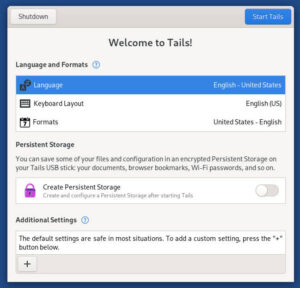Also included: Yahoo’s big hack, Garrett on Lenovo, new Audacious and GNOME, and Ubuntu get’s ready for Yakkety Yak.
FOSS Week in Review
I spent time this week terminating a Yahoo account I’ve had since way back in the last century. For years, the My Yahoo page was my “home” page whenever I fired-up the old dial-up to go online, but over time the portal (remember portals?) became less and less relevant and I found my visits to Yahoo becoming less and less frequent. By the time I closed the account, prompted by news of a massive hack involving 500 million accounts going back to 2014, I hadn’t visited my Yahoo page in well over a year. RIP Yahoo. It was nice knowing you.
The other big story this week involved Linux — or the inability to install Linux on certain Lenovo machines. As you might imagine, when a Lenovo rep on a Best Buy page put the blame squarely in Microsoft’s lap, all heck broke loose. Although it turned out that evidently Redmond had nothing to do with this — the blame goes to Intel for not supplying Linux with necessary drivers — you’d never know it from reading the comments on the story as it ran here on FOSS Force. The day after we ran our story, Matthew Garrett echoed what we said, but in much more detail. I’ll promise you this: If Garrett thought Microsoft had anything to do with it, he’d be the first to say so.
Now let’s get back to blaming Microsoft for things they really are doing.
Krebs on Security in record DDOS attack: Everybody’s go-to site for news and views of security issues, has been temporarily knocked offline in a DDOS attack for the record books. We first heard about the attack on Thursday morning after Brian Krebs reported that his site was being hit by as much as 620 Gbs, more than double the previous record which was considered to be a mind-blower back in 2013 when the anti-spam site Spamhaus was brought to its knees.
Security sites such as Krebs’ that perform investigative research into security issues are often targets of the bad guys. In this latest case, Ars Technica reported the attack came after Krebs published the identity of people connected with vDOS, Israeli black hats who launched DDOS attacks for pay and took in $600,000 in two years doing so. Akamai had been donating DDoS mitigation services to Krebs, but by 4 p.m. on the day the attack began they withdrew the service, motivated by the high cost of defending against such a massive attack. At this point, Krebs decided to shut down his site.
Opera’s free VPN: When Opera announced the release of Opera 40 on Monday, we didn’t pay much attention because we don’t generally care much about proprietary software, especially in an area like browsers where there’s more than enough FOSS and OSS to go around. But we started paying attention when we discovered that the new Opera comes complete with use of a “free, unlimited, no-log browser VPN service” for anonymous browsing, which can be toggled on and off from within the browser.
What I’m hoping is that the folks at Mozilla are paying attention. They certainly have enough bucks on hand to launch a robust public VPN and incorporate it into their browser. With as much talk as they do about privacy rights on the Internet, this would seem to be a no-brainer for them to implement.
Just saying…
Quick takes: The audio player Audacious is now out with version 3.8 with better Windows support, lots of bug fixes, and with the ability to run multiple instances…. Wednesday saw the release of GNOME 3.22 which “introduces major new features as well as many smaller enhancements and fixes.” Among the new features is comprehensive Flatpak integration…. Also on Wednesday, Ubuntu 16.10, Yakkety Yak, entered final beta freeze. Expect Yakkety Yak’s stable release to happen on October 13.
That’s it for now. Until next time, may the FOSS be with you…
Christine Hall has been a journalist since 1971. In 2001, she began writing a weekly consumer computer column and started covering Linux and FOSS in 2002 after making the switch to GNU/Linux. Follow her on Twitter: @BrideOfLinux















Thanks Christine for a nice little roundup of newsworthy items. 🙂
I too would like to see some more built in VPN-ness with Firefox.
Opera was bought by China, so is this private or does it have monitoring and becomes an access point for them?
Matthew Garrett’s post is as full of speculation as anyone else’s. All he’s really got is an opinion.
There’s more than a bit of hypocrisy in his comments as well.
Garret has made controversial suggestions in the past that indicate he offers very little resistance to Microsoft pressure. Linus Torvalds once replied to him “If Red Hat wants to deep-throat Microsoft, that’s *your* issue.”
Christine, In this case I think you are a bit too quick to decide what’s fact and what’s merely opinion.
Randal beat me to it!
And the answer Randal is…it doesn’t matter because I deleted Opera from my three PC’s and phone.
I emailed Vivaldi when this deal went down and they said contrary to an email exchange with them a year earlier they ARE now working on an Android app. They said to be patient, but it was coming!
@Randal: Indeed; as good as built-in VPN sounds I just can’t trust a proprietary program published by Chinese companies.
Now, if they publish the source, that would go partway toward gaining my trust — though it still wouldn’t preclude server-side or MITM shenanigans.
@Thad,
Right, you have only their word that they don’t log and otherwise monitor or alter the VPN traffic. I wouldn’t trust it, just as I would never trust a closed source browser (or an OS for that matter).